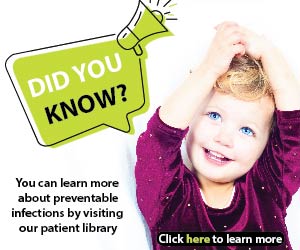Senior years - a golden opportunity to immunize!

Winter is a peak time for people to gather in confined spaces, whether it’s at a Christmas concert or on an airplane. As we age, we become more vulnerable to contagious illnesses and their complications.
Winter crowds leave Canadians more likely to have direct or indirect exposure to infected respiratory droplets from coughs, sneezes, and contact with contaminated surfaces. Two illnesses spread in this way are the flu and invasive pneumococcal disease (IPD), caused by infection with the streptococcus pneumoniae bacteria, which most commonly develops as pneumonia.
Approximately 12,200 Canadians are hospitalized with the flu each year, and 3,500 do not survive the illness. The risk of pneumococcal disease increases as we age – approximately 40% of cases of IPD occur in people over the age of 60.(1,2) For more information visit our flu resources page.
Remember the chicken pox?
About 90% of Canadians had chicken pox as children. Did you know that the varicella-zoster virus that caused it remains dormant in spinal nerves, and may be reactivated years later?
Usually after age 50, one in three of us will be affected by these painful blisters that develop in a strip or patch on one side of the torso or less often, the face.(3)
Luckily, we can reduce our risks of developing these illnesses. The seasonal flu shot is recommended for all Canadians over 6 months of age. Pneumococcal vaccine is advised for anyone over 65 years of age. And if you are over age 50, you will benefit from the shingles vaccine, which is recommended at age 60 and over. (1-3)
Visit the Vaccines411 Adult Immunizations e-brochure to learn more about vaccines you may need.
Looking to travel safely?
You don’t need to travel to remote locations or away from your resort to be at risk of developing serious illnesses – some are very common in much of the developing world, including areas of the Caribbean, as well as South and Central America, Africa and Asia.
Consuming contaminated food or water and person to person contact put you at risk of developing hepatitis A and B, typhoid fever, and traveller’s diarrhea. Having personal services such as a manicure, pedicure, piercing, or acupuncture, can expose you to bodily fluids carrying the hepatitis B infection. Various diseases, including hepatitis A and hepatitis B, are transmitted by sexual activity with an infected person.(4-7)
Visit the Vaccines411 Travel e-Brochure to learn more about travel vaccines. Talk to your healthcare professional 6 to 8 weeks before you plan to travel – and get the vaccinations that will help protect you, depending on your destination and planned activities.
Brought to you by Vaccines411.ca – know where to go for your vaccinations.
This information should not be used as a substitute for the medical care and advice of your doctor. There may be variations in treatment that your physician may recommend based on individual facts and circumstances.
Read more Vaccines411® Articles 
Sources
Note: the hyperlinks that direct to other sites are not continuously updated. It is possible that some links become untraceable over time. Thank you.
- For health professionals: Flu (influenza)
http://www.healthycanadians.gc.ca/diseases-conditions-maladies-affections/disease-maladie/flu-grippe/professionals-professionnels-eng.php - Invasive Pneumococcal Disease
http://www.phac-aspc.gc.ca/im/vpd-mev/pneumococcal-pneumococcie/professionals-professionnels-eng.php - Herpes Zoster (Shingles)
http://www.immunize.ca/en/diseases-vaccines/herpeszoster.aspx - Hepatitis A
http://www.immunize.ca/en/diseases-vaccines/hepatitis-a.aspx - Typhoid fever
http://www.who.int/ith/diseases/typhoidfever/en/ - Travellers' diarrhea
https://travel.gc.ca/travelling/health-safety/diseases/diarrhea - Hepatitis B
http://www.immunize.ca/en/diseases-vaccines/hepatitis-b.aspx



